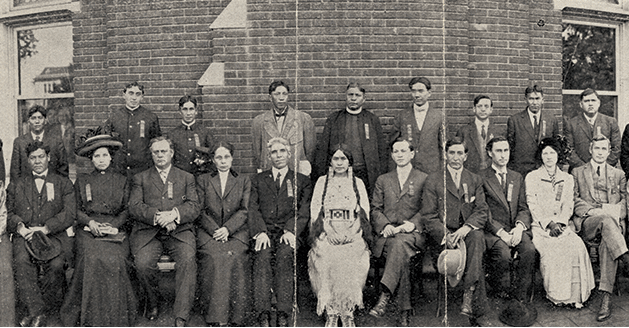
Long before
settler colonialism was developed as a theoretical lens and settler
colonial studies emerged as an academic field, Indigenous peoples in
North America were approaching it through their own knowledge traditions
and frameworks. This course centers the long history of Indigenous
theoretical understandings of settler colonialism: through the work of
“prophets” and visionaries like Handsome Lake (Seneca) and Tenskwatawa
(Shawnee), “Red Progressives” like Zitkala-Să (Lakota), post-WWII
intellectuals like Vine Deloria Jr. (Standing Rock Sioux), and many
more. The course also considers how critiques of settler colonialism
have been embedded in Indigenous future imaginaries and have been an
integral part of the emergence of Indigenous internationalism in the
20th century.
- Instructor: Kaden Jelsing
